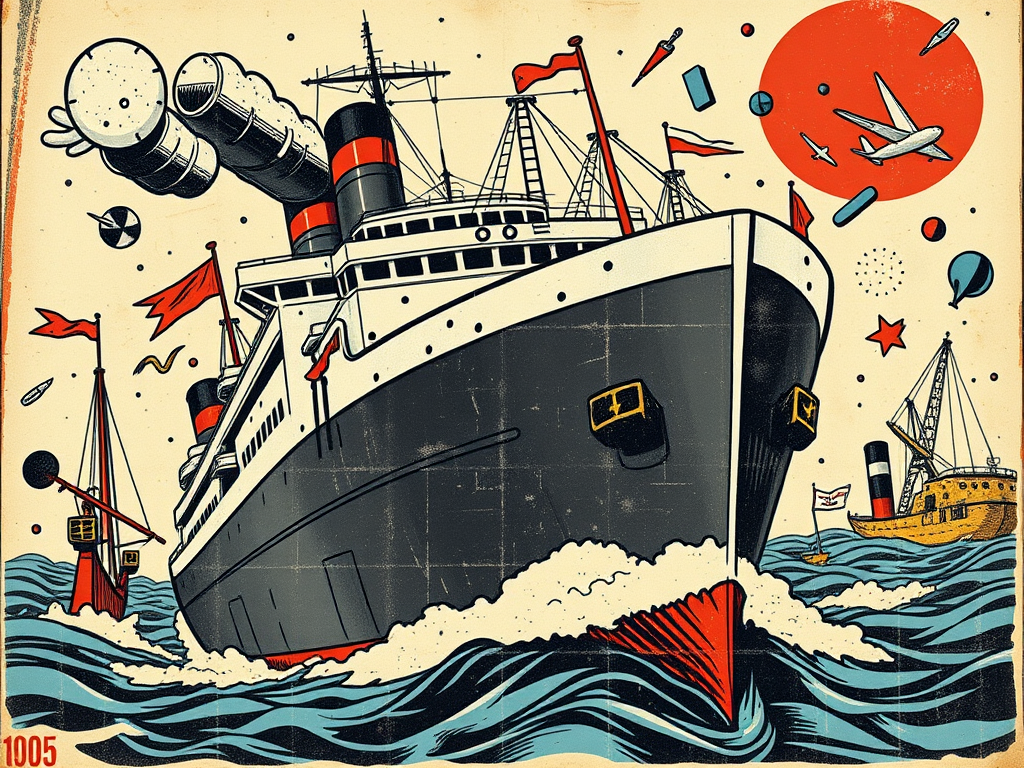
Blue Economy: Investment in Greece’s Fisheries and Aquaculture
Reading time: 15 minutes
Table of Contents
- Introduction to Greece’s Blue Economy
- Overview of Greek Fisheries and Aquaculture
- Economic Impact and Growth Potential
- Investment Opportunities in Greek Fisheries
- Aquaculture: A Booming Sector
- Challenges and Risks
- Government Initiatives and Support
- Sustainable Practices and Future Outlook
- Conclusion
- FAQs
1. Introduction to Greece’s Blue Economy
Greece, with its extensive coastline and rich maritime heritage, is uniquely positioned to capitalize on the burgeoning blue economy. The concept of the blue economy encompasses all economic activities related to oceans, seas, and coastal areas. For Greece, this represents a significant opportunity for economic growth, job creation, and sustainable development.
As we delve into the specifics of Greece’s fisheries and aquaculture sectors, it’s crucial to understand the broader context of the country’s economic landscape. Recent data indicates a surprising resilience in Greece’s labor market, with unemployment rates continuing their downward trend. This economic stability provides a solid foundation for investment in blue economy sectors.
2. Overview of Greek Fisheries and Aquaculture
Greece’s fisheries and aquaculture sectors are integral components of its blue economy. With over 16,000 kilometers of coastline and numerous islands, Greece has a natural advantage in these industries. The country’s fishing fleet, comprising both industrial and small-scale vessels, operates throughout the Mediterranean and beyond.
Aquaculture, on the other hand, has seen remarkable growth in recent decades. Greece is now one of the largest producers of farmed fish in the European Union, with sea bass and sea bream being the primary species cultivated.
Historical Context and Evolution
Fishing has been a part of Greek culture and economy for millennia. However, the modern fisheries and aquaculture sectors have undergone significant transformation. The introduction of advanced technologies, coupled with growing global demand for seafood, has propelled these industries into the 21st century.
Aquaculture, in particular, has seen exponential growth since the 1980s. This growth has been driven by increasing demand for fish products, declining wild fish stocks, and advancements in aquaculture technologies.
3. Economic Impact and Growth Potential
The economic significance of Greece’s fisheries and aquaculture sectors cannot be overstated. Recent data shows that these industries contribute substantially to the country’s GDP and employment figures. In 2020, despite the global pandemic, the aquaculture sector alone generated over €500 million in export revenue.
The growth potential of these sectors is particularly noteworthy. With global seafood consumption on the rise and wild fish stocks under pressure, Greece’s aquaculture industry is well-positioned for continued expansion. Projections indicate that the sector could double its production and value by 2030, creating thousands of new jobs in the process.
4. Investment Opportunities in Greek Fisheries
For investors looking to capitalize on Greece’s blue economy, the fisheries sector offers several compelling opportunities. These range from direct investment in fishing fleets to ancillary services and processing facilities.
Modernization of Fishing Fleets
One significant area of investment is the modernization of Greece’s fishing fleet. Many vessels are aging and in need of upgrades to improve efficiency and sustainability. Investments in newer, more fuel-efficient vessels and advanced fishing technologies can yield substantial returns while also promoting sustainable fishing practices.
Processing and Value-Added Products
Another promising area for investment is in fish processing and the development of value-added products. With consumers increasingly demanding convenience and ready-to-eat seafood options, there’s significant potential in establishing or expanding processing facilities. This not only adds value to raw fish products but also creates additional employment opportunities in coastal communities.
5. Aquaculture: A Booming Sector
Greece’s aquaculture sector presents perhaps the most exciting investment opportunities within the blue economy. The country’s ideal environmental conditions, coupled with growing global demand for farmed fish, make this a particularly attractive area for investment.
Expansion of Existing Farms
Many existing aquaculture operations in Greece have the potential for expansion. Investments in increasing production capacity, improving feed efficiency, and implementing advanced monitoring systems can significantly boost productivity and profitability.
Diversification of Species
While sea bass and sea bream remain the primary farmed species, there’s growing interest in diversifying into other high-value species. Investments in research and development of new aquaculture species could open up new market opportunities and reduce dependency on a limited number of species.
Technological Advancements
The application of cutting-edge technologies in aquaculture presents another exciting investment opportunity. From AI-driven feeding systems to blockchain for traceability, technological innovations can dramatically improve efficiency and sustainability in the sector.
6. Challenges and Risks
While the opportunities in Greece’s fisheries and aquaculture sectors are significant, it’s important for potential investors to be aware of the challenges and risks involved.
Environmental Concerns
One of the primary challenges facing both fisheries and aquaculture is environmental sustainability. Overfishing remains a concern in some areas, while aquaculture operations can have impacts on local ecosystems if not properly managed. Investors need to be prepared to address these concerns and implement sustainable practices.
Market Volatility
Like any commodity-based industry, fisheries and aquaculture are subject to market fluctuations. Prices can be affected by factors ranging from global supply and demand dynamics to changes in consumer preferences. Investors should be prepared for this volatility and have strategies in place to mitigate its impacts.
Regulatory Environment
The regulatory landscape for fisheries and aquaculture in Greece is complex and evolving. EU regulations, national laws, and local ordinances all play a role in governing these industries. Navigating this regulatory environment can be challenging, particularly for foreign investors.
7. Government Initiatives and Support
The Greek government, recognizing the potential of the blue economy, has implemented several initiatives to support and promote investment in fisheries and aquaculture.
Financial Incentives
Various financial incentives are available for investors in the blue economy sectors. These include tax breaks, subsidies for equipment upgrades, and low-interest loans for expansion projects. The government has also earmarked significant funds from the EU’s Recovery and Resilience Facility for blue economy initiatives.
Streamlined Licensing Processes
Efforts are underway to simplify and streamline the licensing processes for aquaculture operations. This is aimed at reducing bureaucratic hurdles and making it easier for both domestic and foreign investors to establish or expand operations in Greece.
Research and Development Support
The government is also investing in research and development to support the growth of the fisheries and aquaculture sectors. This includes funding for marine research institutes and partnerships with universities to drive innovation in the industry.
8. Sustainable Practices and Future Outlook
The future of Greece’s fisheries and aquaculture sectors is inextricably linked to sustainability. Investors who prioritize sustainable practices are likely to see the most long-term success in these industries.
Sustainable Fishing Practices
In the fisheries sector, there’s a growing emphasis on sustainable fishing practices. This includes the use of more selective fishing gear to reduce bycatch, implementation of catch quotas based on scientific assessments, and the establishment of marine protected areas to allow fish stocks to recover.
Sustainable Aquaculture
In aquaculture, sustainability initiatives focus on reducing environmental impacts and improving fish welfare. This includes the development of land-based recirculating aquaculture systems, use of alternative feed sources to reduce reliance on wild fish stocks, and implementation of integrated multi-trophic aquaculture systems that mimic natural ecosystems.
Future Outlook
The future outlook for Greece’s fisheries and aquaculture sectors is generally positive. Global demand for seafood continues to rise, and Greece is well-positioned to meet this demand with its expanding aquaculture sector and sustainably managed fisheries. However, success will depend on continued investment in sustainable practices, technological innovation, and adaptation to changing market conditions and environmental realities.
9. Conclusion
Greece’s blue economy, particularly its fisheries and aquaculture sectors, presents significant opportunities for investment and growth. The country’s natural advantages, coupled with government support and growing global demand for seafood products, create a favorable environment for investors.
However, success in these sectors requires a nuanced understanding of the challenges involved, from environmental concerns to market volatility. Investors who prioritize sustainability, embrace technological innovation, and navigate the regulatory landscape effectively are likely to see the greatest returns.
As Greece continues to position itself as a leader in the Mediterranean’s blue economy, the fisheries and aquaculture sectors are poised for substantial growth. For investors looking to diversify their portfolios and capitalize on emerging trends in food production and sustainability, Greece’s blue economy offers a compelling opportunity.
Whether you’re interested in modernizing fishing fleets, expanding aquaculture operations, or investing in processing facilities, Greece’s maritime sectors offer a range of options. And for those looking to combine their investment strategies with property for sale greece, coastal areas with strong fishing or aquaculture presence could provide synergistic opportunities.
10. FAQs
Q1: What are the main fish species farmed in Greek aquaculture?
A1: The main species farmed in Greek aquaculture are European sea bass (Dicentrarchus labrax) and gilthead sea bream (Sparus aurata). However, there’s growing diversification into species like meagre, greater amberjack, and bluefin tuna.
Q2: How does Greece’s aquaculture sector compare to others in the EU?
A2: Greece is one of the largest producers of farmed fish in the EU, particularly for sea bass and sea bream. It accounts for about 59% of the EU’s production of these species.
Q3: What are the main challenges facing Greece’s fishing industry?
A3: The main challenges include overfishing in some areas, aging fishing fleets, competition from imports, and the need to adapt to EU regulations on sustainable fishing practices.
Q4: Are there any specific tax incentives for investing in Greece’s blue economy?
A4: Yes, Greece offers various tax incentives for investments in the blue economy, including reduced corporate tax rates, accelerated depreciation for equipment, and subsidies for certain types of investments. However, these incentives can change, so it’s important to consult with local experts for the most up-to-date information.
Q5: How is climate change expected to impact Greece’s fisheries and aquaculture sectors?
A5: Climate change poses significant challenges, including rising sea temperatures, changes in fish migration patterns, and increased frequency of extreme weather events. However, it may also create opportunities, such as the potential to farm new species that prefer warmer waters. Adaptation strategies will be crucial for the long-term sustainability of these sectors.

Article reviewed by MDavid Cohen, Chief Strategy Officer | Architect of Scalable Growth for Tech Startups, on March 21, 2025


